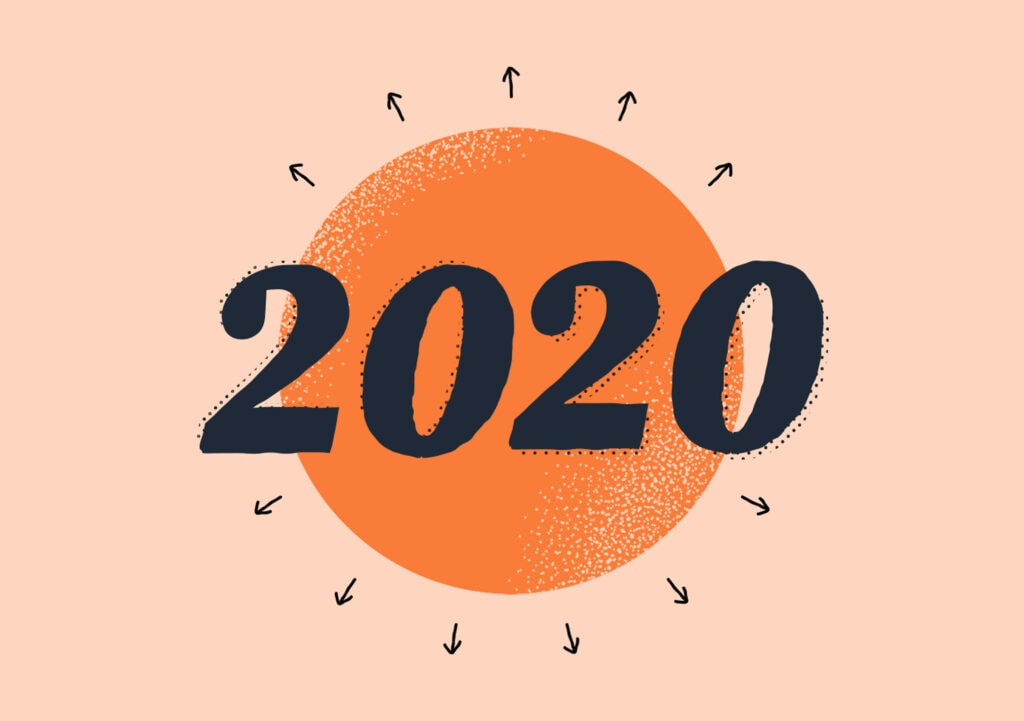Over the course of the 2010s, the scope of human resources has expanded and evolved alongside changes in how organizations function, how teams are managed, and how employees set their expectations when it comes to work.
As HR enters the next decade, HR trends must focus attention on the human element of human resources and people management in order to continue providing engaging and exceptional work experiences for their people.
These are the HR trends we anticipate will transform the workforce and the workplace in 2020.
Using people analytics for decision making
Big data analysis has wide-reaching potential that can be applied to any sector of an organization. In HR, utilizing a data-driven approach to people analytics allows employers to discover valuable insights on employee performance and satisfaction and what influences their productivity and motivation.
With HR tech solutions, HR departments are equipped with a wealth of information that is available at their fingertips, including recruitment data, employee statistics, and performance KPIs. In the years to come, HR trends will see companies apply this valuable intel into making smarter decisions for their organizations, from less biased hiring decisions to better support for their current employees.
Improving the job applicant experience
If recruiting new hires to your organization is a complicated and lengthy experience, you will continue to miss out on bringing incredible talent to your teams. Making the recruitment process streamlined and efficient for both your HR department and your applicants is critical to landing the best people for the job.
In the new year and beyond, HR pros will implement HR solutions to simplify and speed up their administrative processes, from applicant tracking to application communication, through automation, thus reducing recruitment timelines significantly. Talent and recruitment pros will then be freed up to spend more time on improving the interview experience for candidates and increasing the odds of finding the right organizational fits.
Focusing on employer branding
In today’s competitive labour market, persuading talent to join your organization is a challenge. To hire stars for your team, your company needs to boast a five star reputation.
In 2020, organizations will continue to take stock of their employer brand by considering what it is that sets them apart as employers and how they market themselves as a unique workplace. Whether it’s a commitment to corporate social responsibility or offering flexible work benefits programs, companies that have identifiable qualities when it comes to their value propositions to employees will succeed in attracting new talent and sustaining current talent.
The end goal is to be a company that your people will be advocates of, whether by promoting your work environment on Glassdoor or recommending your job vacancies to their professional networks. By providing value to employees, a positive company image will come naturally.
Cultivating authentic workplace cultures
With stories of workplace harassment and toxic office environments dominating the news cycles in recent years, addressing unhealthy corporate cultures will be a core focus for 2020.
Organizations will put their focus on evaluating their values and fostering healthy employee experiences, from enforcing policies on workplace conduct to honouring their people’s need for a balanced work-life schedule. With workers advocating for their right to safe and respectable work environments, the value of transparency in communication and having trust in one’s people is non-negotiable.
Upskilling to invest in team and business growth
As the workplace continues to evolve with new technologies and new innovations, the workforce is feeling the pressure to keep up with the rapid changes and the expectations that follow. Organizations will do well to ensure their people have the skills needed for the future of work by investing in upskilling.
By helping employees further strengthen their core skills and gain in-demand skills related to their roles, along with connecting them with opportunities to build their leadership skills, companies will help train their people to become specialists, managers, and leaders within their teams. Prioritizing learning and development serves benefits for both the professional growth of your people and the business growth of your organization.
Providing holistic health benefits
Work-related stress impacts the overall engagement and well-being of your employees. HR trends in 2020 and beyond, will see organizations build stress-reduction activities into their employee wellness programming by focusing on holistic health benefits.
Holistic benefits plans and programs will be constructed to address all aspects of health and wellness care, from mind and body components and extending to include financial wellness and personal coaching. Companies that take on this responsibility for their people will see the benefits upon employee recruitment, retention, and productivity.
Establishing work-life balance as the norm
People are working more than ever and are seeing a blend of work and life in place of the supposed work-life balance. Whereas this balance is seen as an aspiration to have, having a clear distinction between these spheres should be a given.
With burnout being recognized as an occupational phenomenon in 2019, employers in 2020 will strive to establish healthy boundaries for their employees. From solidifying policies around work hours and conducting more frequent one-on-one check-ins with management, organizations will do the work to prevent the negative consequences of burning out at work.
Offering flexible workspaces
Flexibility at work has been a core theme of the past year, with flexible workspaces gaining in necessity for organization.
Allowing people the opportunity to tailor and customize their work environments to best suit their working preferences helps to improve employee productivity.
In 2020, HR trends will see that the modern office has evolved beyond a physical place to become a function that could be carried out from anywhere. This will challenge employers to reconsider adjustments to their company policies around flexible work options, from offering work-from-home days to being open to hiring remote workers.
Embracing leadership from Millennials and Gen Z
By the end of the 2010s, the workforce saw Millennials taking the reins in management and leadership seats and Gen Z entering the workforce in droves. As it stands, we are witnessing one of the largest and most profound generational shifts to occur in the workplace.
Whereas older generations were apprehensive about the challenges this digital-savvy and independent cohort brings to work, 2020 will see companies embrace the opportunities Millennials and Gen Z will bring to modernize their workforces. With their ideals of diversity, equality, innovation, and care, these new generations will shape how organizations will function and strategize for decades to come as leaders, managers, and team members.
Taking a stand with their people
Social responsibility will be on the corporate agenda in the new decade. Socially conscious employees will expect and demand their companies to take a stand on issues of importance, from gender and racial equality, to mental health and the environment.
For example, with the climate strikes as a hot topic in 2019, there is a growing interest in topics related to environmental change and sustainability. In the workplace, employees are increasingly expecting their employers to implement eco-friendly practices into their company culture, or to at least support their values. HR trends will see organizations that value purpose and demonstrate their commitment by using their voice and taking a stand with their people find success in 2020 and beyond.



